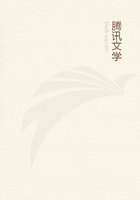legs and butterflies' wings, and disembowel every frog they catch, have no thought at all about the matter.The creatures tempt their hands to a fascinating occupation, to which they have to yield.It is with them as with the 'boy-fiend' Jesse Pomeroy, who cut a little girl's throat, 'just to see how she'd act.' The normal provocatives of the impulse are all living beasts, great and small, toward which a contrary habit has not been formed -- all human beings in whom we perceive a certain intent towards us, and a large number of human beings who offend us peremptorily, either by their look, or gait, or by some circumstance in their lives which we dislike.Inhibited by sympathy, and by reflection calling up impulses of an opposite kind, civilized men lose the habit of acting out their pugnacious instincts in a perfectly natural way, and a passing feeling of anger, with its comparatively feint bodily ex- pressions, may be the limit of their physical combativeness.Such a feeling as this may, however, be aroused by a wide range of objects.Inanimate things, combinations of color and sound, bad bills of fare, may in persons who combine fastidious taste with an irascible :temperament produce real ebullitions of rage.Though the female sex is often said to have less pugnacity than the male, the difference seems connected more with the extent of the motor consequences of the impulse than with its frequency.Women take offence and get angry, if anything, more easily than men, but their anger is inhibited by fear and other principles of their nature from expressing itself in blows.The hunting-:instinct proper seems to be decidedly weaker in them than in men.
The latter instinct is easily restricted by habit to certain objects, which become legitimate 'game,' while other things are spared.If the hunting-instinct be not exercised at all, it may even entirely die out, and a man may enjoy letting a wild creature live, even though he might easily kill it.Such a type is now becoming frequent; but there is no doubt that in the eyes of a child of nature such a, personage would seem a sort of moral monster.
Fear is a reaction aroused by the same objects that arouse ferocity.The antagonism of the two is an interesting study in instinctive dynamics.
We both fear, and wish to kill, anything that may kill us; and the question which of the two impulses we shall follow is usually decided by some one of those collateral circumstances of the particular case, to be moved by which is the mark of superior mental natures.Of course this introduces uncertainty into the reaction; but it is an uncertainty found in the higher brutes as well as in men, and ought not to be taken as proof that we are less instinctive than they.
Fear has bodily expressions of an extremely energetic kind, and stands, beside lust and anger, as one of the three most exciting emotions of which our nature is susceptible.The progress from brute to man is characterized by nothing so much as by the decrease in frequency of proper occasions for fear.In civilized life, in particular, it has at last become possible for large numbers of people to pass from the cradle to the grave without ever having had a pang of genu- ine fear.Many of us need an attack of mental disease to teach us the meaning of the word.Hence the possibility of so much blindly optimistic philosophy and religion.The atrocities of life become 'like a tale of little meaning though the words are strong;'
we doubt if anything like us ever really was within the tiger's jaws, and conclude that the horrors we hear of are but a sort of painted tapestry for the chambers in which we lie so comfortably at peace with ourselves and with the world.
Be this as it may, fear is a genuine instinct, and one of the earliest shown by the 】lumen child.Noises seem especially to call it forth.Most noises from the outer world, to a child bred in the house, have no exact significance.They are simply startling.To quote a good observer, M.Perez:
"Children between three and ten months are less often alarmed by visual than by auditory impressions.In cats, from the fifteenth day, the contrary is the case.A child, three And a half months old, in the midst of the turmoil of a conflagration, in presence of the devouring flames and ruined walls, showed neither astonishment nor fear, but smiled at the woman who was taking care of him, while his parents were busy.The noise, however, of the trumpet of the firemen, who were approaching, and that of the wheels of the engine, made him start and cry.At this age I have never yet seen an infant startled at a flash of lightning, even when intense; but I have seen many of them alarmed at the voice of the thunder....Thus fear comes rather by the ears than by the eyes, to the child without experience.It is natural that this should be reversed, or reduced, in animals organized to perceive danger afar.Accordingly, although I have never seen a child frightened at his first sight of fire, I have many a time seen young dogs, young cats, young chickens, and young birds frightened thereby....I picked up some years ago a lost cat about a year old.Some months afterward at the onset of cold weather I lit the fire in the grate of my study, which was her reception-room.She first looked at the flame in a very frightened way.Brought her near to it.She leaped away and ran to hide under the bed.Although the he was lighted every day, it was not until the end of the winter that I could prevail upon her to stay upon a chair near it.
The next winter, however, all apprehension had disappeared....Let us, then, conclude that there are hereditary dispositions to fear, which are independent of experience, but which experiences may end by attenuating very considerably.In the human infant I believe them to be particularly connected with the ear."















